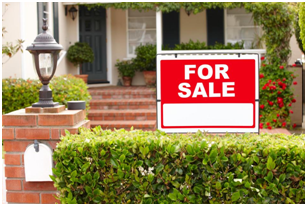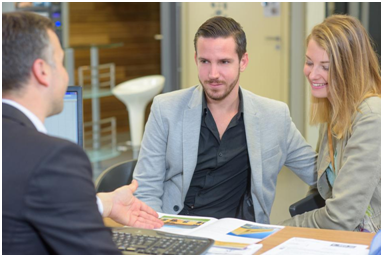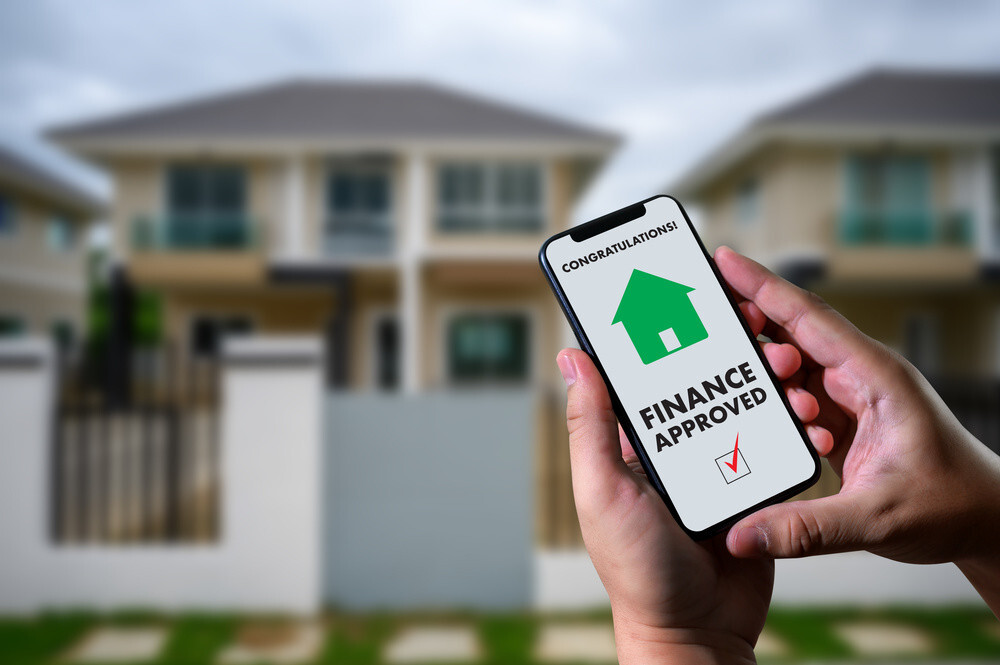 For most people, purchasing a home is their first big investment. You likely haven’t bought anything as expensive or as big of a commitment as a house before you purchase your very first home. Which means, if you’re like most, you’ll be hesitant to do so. Maybe the purchase makes you slightly nervous, or you might be unsure if you are ready to transition from renter to homeowner.
For most people, purchasing a home is their first big investment. You likely haven’t bought anything as expensive or as big of a commitment as a house before you purchase your very first home. Which means, if you’re like most, you’ll be hesitant to do so. Maybe the purchase makes you slightly nervous, or you might be unsure if you are ready to transition from renter to homeowner.
However, everyone is different and has varying situations. There is no standard “right time” that one can use. But, if you’ve been pondering the idea of homeownership, there are several signs that tell us you might be ready.
Below you’ll find 7 telltale signs that you’re ready to take the leap and buy your first home.
1. You’re ready for the big commitment.
If you believe you’re ready to become a homeowner, consider if you’re ready to essentially be your own landlord. All home maintenance now falls in your lap, and, depending on what they are, they can be costly.
Also, with homeownership comes more financial responsibility in terms of paying property taxes, possible HOA fees, and mortgage and loan payments, not to mention the additional costs, such as inspections, moving fees and the time/money you’ll spend if you end up selling in the future.
If you’re ready to take on all of this, then you’re at least one step closer to buying your home. However, if you’re not ready for all this commitment, it’s not a great idea to buy a home.
2. You have adequate funds.
Secondly, while you might be ready for the commitment, you obviously need adequate funds to purchase a home. This means, at the very least, you need to have enough money for a down payment.
Oh, and an expert tip for your loan is to get pre-approved by a mortgage broker. Look for one with excellent reviews and try to stay away from banks, as independent brokers are more motivated to help you with all of your specific needs.
Let’s take a look at the big picture for a second. The less you owe on your house, the less you’ll have to pay off. Which, in return, means less interest will be added to your loan payment. But the loan is separate from your down payment.
If you can put a large amount of money toward a down payment on a home, you’re starting off on the right foot. While a lot of people find it hard to use a large lump sum for a down payment, rather than a nice car or fancy trip, think of it as an investment. That money will go toward your equity, and you’ll see it when/if you sell your house at some point in the future.
While a good starting point for your down payment is about 5 percent of the total cost of the home, ideally you’d like to have at least 20 percent of the total cost saved up for you down payment. This is because if you make a down payment of 10 percent or lower you will have to pay a monthly private mortgage insurance fee, which protects the lender in the event you default.
3. Owning could cost the same or less than renting.
In some cases, renting can cost just as much as a mortgage and associated fees. You may be tired of paying high rent and believe it’ll be more beneficial to own at the same costs. If you’re paying high rent prices, it is better for those payments to go toward your own home equity. Look up interest rates and the cost of mortgages, and talk to a financial advisor/bank to look at your options.
4. Low interest rates are available.
It’s a new homeowner’s dream to have a low interest rate on their mortgage loans. In the long run, it can save you a ton of money. If you’ve been considering buying a home and the interest rates are low – as they are currently – that’s a great time to take the plunge.
5. You’ve created a budget.
A budget is the number one way to keep track of your finances and clearly illustrate what you can and cannot afford. Even if you think or know that you have money for a down payment, be sure to take a good, hard look at your finances.
Then create a budget that you plan to stick to. Be sure you include the amount that the household brings in, and subtract all the bills and necessities. That number is where your down payment and housing expenses will come from.
6. You plan to stay in the area.
Perhaps you’re ready to commit, you have the funds for a down payment, and the price of renting is about the same as a mortgage payment would be. Great! But, if you don’t plan to stay in the area for about five to seven years, you might want to reconsider buying a home.
While you certainly can purchase a home for the short term, it’s not the best move financially. With the exception of a plan to keep the property and rent it out, that is. When you consider all the costs that go into the home – your down payment, mortgage payments, repairs, maintenance, and renovations – to turn around and sell it after just a couple of years doesn’t make much sense. You are very unlikely to break even.
7. It’s a buyer’s market.
Just as when interest rates are low, when the market you’re looking in is experiencing a buyer’s market, that is another great time to take advantage of. A buyer’s market refers to a time when the demand for houses is low, and there is plenty of inventory in the market. Homes in a buyer’s market don’t tend to move too fast and, while they are often priced high, buyers can usually negotiate a lower price.
Purchasing a home is a huge milestone in your life. As exciting as it is, it can also be nerve-wracking and confusing. There are many parts of the home buying process that aren’t as fun as shopping for the perfect property to call yours. For inexperienced buyers, it helps to have the professional help of an experienced real estate agent on their side.
If you’re looking to take a permanent residence in the Atlanta and surrounding metro areas, rely on Janet Elliot for all your first-time buying needs. With over 28 years of experience, she offers insider knowledge of the area and its neighborhoods. Plus, she uses her expertise to make the home buying process as stress-free as possible.






































